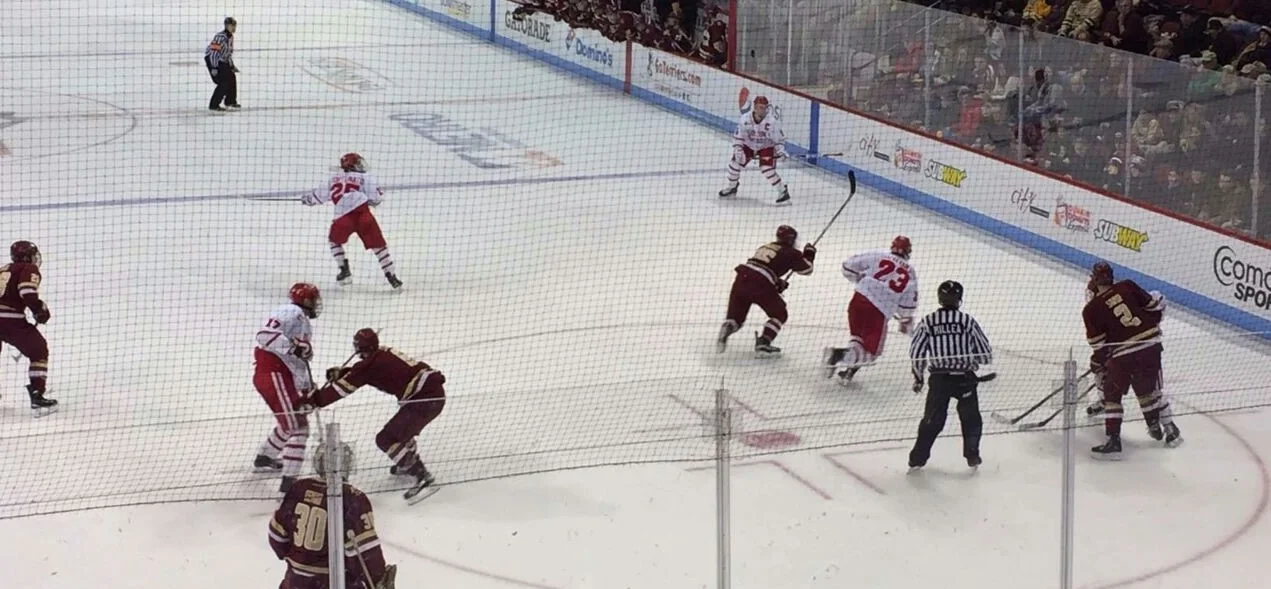Children, Collaboration, and Sports!
Over the weekend I met Mr. Raman Bajaj, CEO - Educomp Childcare Pvt Ltd. He made a very interesting remark on the importance of sports for a student while discussing education, sports and my passion for fitness. As much an advocate of sports - especially for children - I am, I would not have put it such an interesting way.
Boston University Terriers playing Ice-Hockey against Boston College Eagles
He said - during the entire student life, academic excellence is judged on individual effort and not teamwork. Students have to write all the exams, whether it's math, science or language, on their own. The homework is supposed to be done by the students locked in a room, working by themselves. If they try to ask for help during exams or homework from fellow students, they are labeled as cheaters. The system promotes working alone towards self-goal in the student.
When the same student enters the corporate world, she finds it difficult to work in the team as that’s completely opposite to what she has been taught so far. She has to first unlearn everything and then learn how to work in a team, along with all the other things that are required for the job. Otherwise, she is labeled as not a team player in the performance review. This learning and unlearning can easily become overwhelming for a lot of students. Fortunately, there is an easy fix for this. Sports!
Playing sports has various benefits - it helps in development of brain, assists overall growth and teaches essential life skills such as leadership collaboration and how to deal with challenges and failures. Let’s dive deeper into how sports makes someone a better team player. According to the Oxford Dictionary collaboration can be defined as - “The action of working with someone to produce something.”
To be successful in sports, individuals have to work together towards a common goal. They have to learn their role, understand their strength and weakness as well as strengths and weaknesses of their team members. They also learn how to align their individual goals with the goals of their team, set aside their differences, adapt to the changes, and lead and be led. Sports, whether organized or unorganized, can teach children this without necessarily telling them about it as they would pick it up on their own. Sharing knowledge is crucial to good performance in sports, is encouraged and, unlike academics, is not considered as cheating.
I’m not saying that playing sports will definitely make someone a team player nor am I claiming that sports is the only way to become one, however, playing sports does increase the chances of students learning collaboration. With advancements in Artificial Intelligence, machines are poised to take over the majority of the work humans are currently doing that is based on knowledge of a specific subject.
As concluded by Jack Ma (Ma Yun), founder and executive chairman of Alibaba Group, at World Economic Forum 2018 in Davos. “We have to teach (our kids) something unique so that machines can never catch up with us - values, believing, independent thinking, teamwork, (and) care for others.” Let’s encourage our children to play more sports, help them become team players and make them better prepared for the future.
